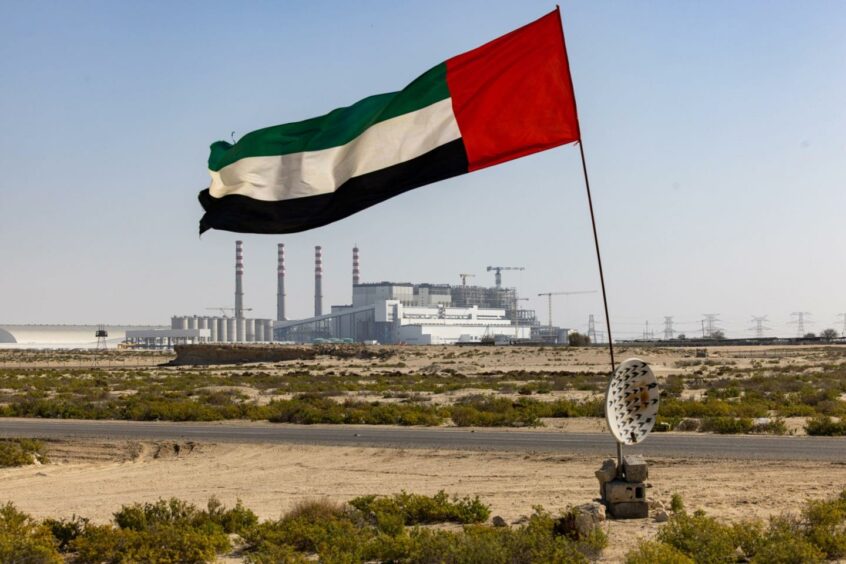
The United Arab Emirates said an exploding gas cylinder was responsible for a blast that rocked the capital overnight, as the US issued another warning to its citizens to remain vigilant following a series of attacks on the Gulf country.
Civil defence teams in Abu Dhabi evacuated a building and there were no casualties, the UAE’s official news agency WAM reported, warning the public not to spread rumours.
In a message issued to American citizens residing in the UAE on Wednesday, the US embassy didn’t confirm what had caused the latest explosion but reiterated the advice it’s issued following previous attacks.
“There are reports of a possible missile or drone strike having occurred over Abu Dhabi,” the message said. “The Embassy advises US citizens to immediately follow the safety actions listed below and stay alert in case of additional future attacks.”
Yemen’s Iranian-backed Houthi group has claimed three missile and drone attacks on the oil exporter and Middle East business hub in recent weeks. A similar attack on the UAE this month was claimed by a separate group, which is believed by analysts to be tied to Iraq-based pro-Iranian militia.
The latest blast came as the US said it was sending a warship and fighter jets to help the UAE fend off attacks. The UAE hosts about 2,000 American troops at a base in Abu Dhabi, and the US last month warned against travel to the Gulf nation, in part due to the threat of missile and drone attacks.
The UAE is part of a Saudi-led military coalition that has been battling the Houthis since 2015, after they swept through northern Yemen and captured the capital from the internationally-recognised government.
The Iran-backed group regularly fires missiles and drones at neighbouring Saudi Arabia, but attacks on the UAE had, until recently, been rare.
The incidents could upset fragile diplomatic efforts to ease Tehran’s frictions with Gulf Arab neighbours as well as complicate broader negotiations to restore Iran’s 2015 nuclear deal with world powers with talks this week entering what envoys have described as a critical stage.